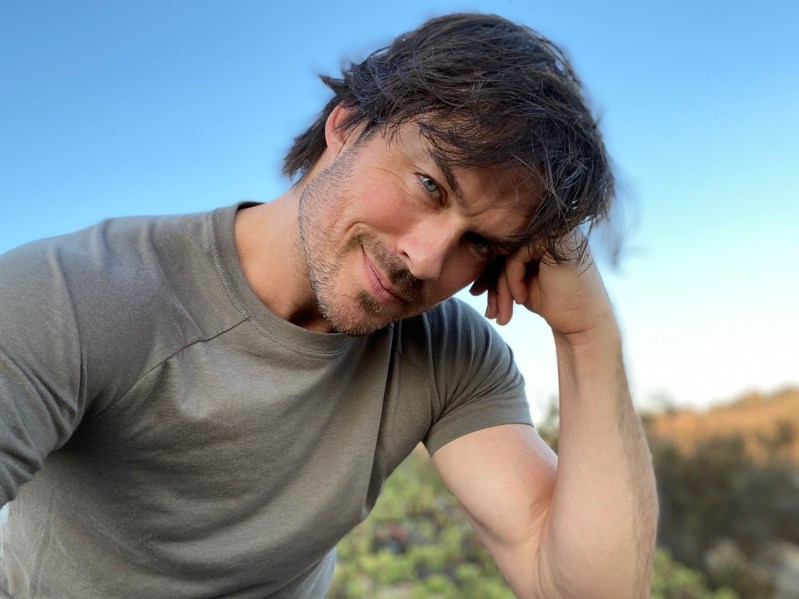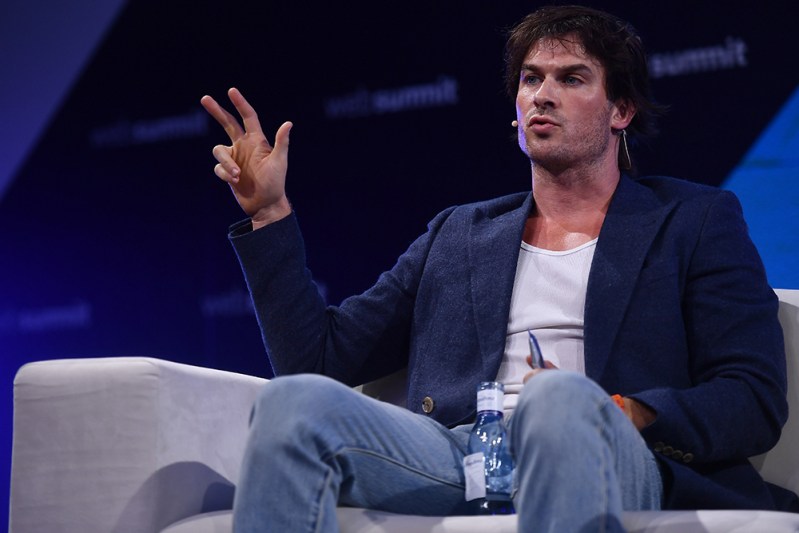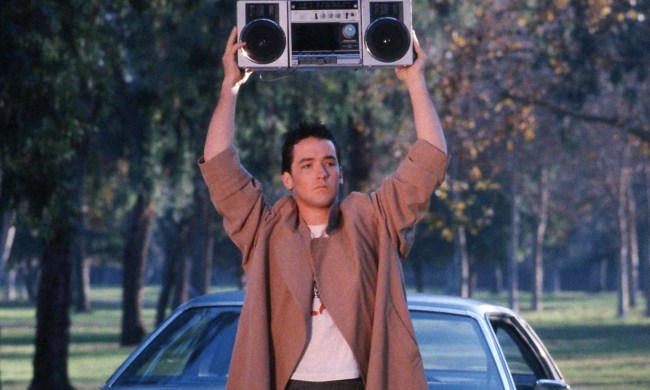
When the world’s largest online retailer decided to get into the sustainability game, they not only partnered with existing third-party certifications (like Bluesign, Fairtrade International, and Cradle to Cradle), they also chose to bring on some high-wattage (and well-informed) star power. Ian Somerhalder, star of The Vampire Diaries and Lost, also had roles on Smallville and The Young Americans back in the 2000s. Most recently he was the star of Netflix’s creepy vampire meets sci-fi flick V-Wars. Yet Somerhalder also brings his own proficiency on environmental matters to the table.
Related Guides
Off to an Early Start
Somerhalder grew up in Louisiana. “We were always in and out of the bayous and the spillways and had a strong love for the environment; but in the 80-mile stretch of the Mississippi River there are more than a hundred petrochemical facilities,” Somerhalder tells The Manual. “That’s why fixing the fossil fuel problem has always been important to me. If you ask most of us to define our environment, we’d say the natural world that surrounds us. Deepak Chopra said to me imagine that we are not different, that we are all part of the same biological process. Trees are the earth’s lungs and just like our cardiovascular system, they carry vital nutrients to our organs. If we cut down all the trees, the organism can’t breathe. If we dam and pollute and destroy all the waterways, those vital nutrients can’t get to the organism, and the organism starts to die.”
When Somerhalder (who has an environmentally oriented foundation of his own) attended one of alternative-medicine guru Chopra’s symposiums, he was introduced to Alan Savory, a revolutionary ecologist and farmer from Zimbabwe. Savory had been in the Rhodesian parliament (before the African nation became Zimbabwe), resigning his position over the government’s racist policies. “As far back as 1973 he knew that by the year 2000 we were going to run into a global climate crisis,” says Somerhalder. “He could see that we were killing the microbiome in our soil. He figured out a way to use cattle to regenerate grasslands, therefore storing enormous amounts of carbon. He’d created a living, breathing Eden from land that had once been devoid of life. He could literally reverse climate change.”
Somerhalder decided to go to Zimbabwe to see this miracle for himself, shooting footage of the pioneer’s holistic land management style, kicking around the idea of making a documentary of his own. He connected with directors Rebecca Harrell Tickell and Joshua Tickell. The couple were making Kiss the Ground, a film that eschews much of the doom-and-gloom we’ve come to expect from movies about our planet and the environment; instead celebrating what iMDB calls, “A revolutionary group of activists, scientists, farmers, and politicians.” The directors grabbed Somerhalder’s inspiring footage and interview with Savory, blending it seamlessly into the story.
Amazon Challenge
Somerhalder’s celebrity appeal and his environmental activism made him a natural for Amazon to tap as a spokesperson for its new Climate Pledge Friendly Collection

Amazon’s Climate Pledge Friendly selection includes grocery, household, fashion, beauty, personal electronics products, and more from brands including Seventh Generation, The Honest, Company, Burt’s Bees Baby, and HP. Products are clearly labeled in shopping results, have additional sustainability information on the product page, and are featured in a dedicated section of the Amazon store.
Both Amazon and Somerhalder recognize that sustainability often comes with a price. “It creates a socio-economic divide,” says Somerhalder. “I grew up very poor in Southeastern Louisiana. We had everything we needed, but a lot of people can’t afford organic. We need to move to a space where everyone can. How do you do that at scale? With programs like these, prices fall precipitously for the consumer, and farmers continue to make more money. Building farmer prosperity while producing oxygen and sequestering enormous amounts of carbon is the way of the future.”
“These certifications became incredibly problematic in the organic space because you could also start to buy them. Amazon is addressing 19 certifications, allowing for a very wide range of products that fall into those categories. I’m excited to be a part of this with Amazon because these certifications have meaning. There’s an understanding behind them, and they’re designed ultimately to give a consumer more choices while giving producers, retailers, and wholesalers an opportunity to actually flourish.
Our Next Steps
So besides shopping at Amazon, does Somerhalder have any other advice for aspiring eco-warriors? “It’s as simple as turning off the lights when you leave the house,” he recommends. “The dog does not have to watch television while you’re gone all day. When you’re brushing your teeth, turn the water off. We can save up to 600 million gallons or so a day in the United States, just by people being more mindful when brushing their teeth or when shaving. Unplug appliances that are pulling a little bit of power when not in use. It may not seem like much, but at scale, that makes a huge difference. Buy organic as much as you can. Drive a more fuel-efficient car. Lean away from companies that are using virgin plastics. Shop local. The amount of carbon you save, the number of preservatives and chemicals that you keep out of the food chain can be enormous. Make sure that you and your community are recycling.”
“Every dollar we spend is a hard-earned dollar,” says Somerhalder. “Smart, empowered, conscious consumerism will change the global climate crisis. When we leave our home, we have the power to vote with that dollar. What companies are we going to spend our money on? Are those companies good stewards of the environment, up and down their supply chain? Do they do their best at taking care of their people and the planet around them? When big corporations feel the pinch, things will change. The future of business is a triple bottom line: people, planet, and profit.”


